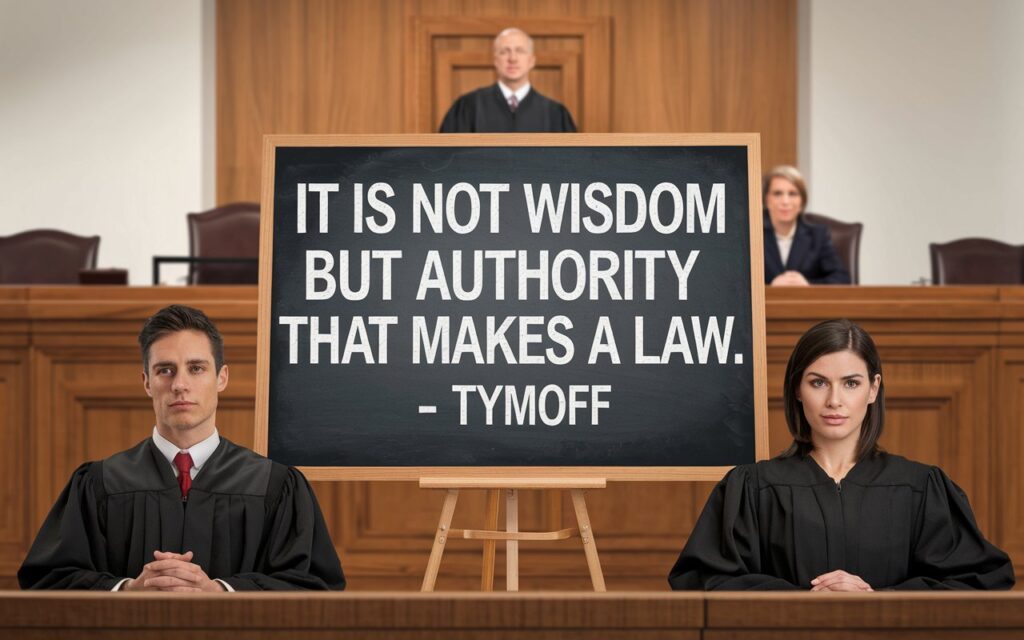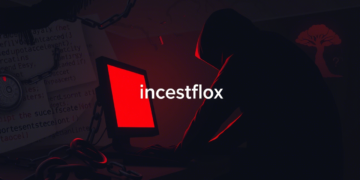Laws are the backbone of any society, shaping behavior, maintaining order, and defining the boundaries of acceptable conduct. The thought-provoking quote, “it is not wisdom but authority that makes a law. t – tymoff,” serves as a reminder that the essence of lawmaking lies more in the power to enforce than in the innate wisdom behind the laws themselves. This notion opens up a crucial dialogue about the interplay between authority, wisdom, and justice in governance and societal frameworks.
What Defines a Law: Authority Over Wisdom
The essence of this quote rests in acknowledging that laws derive their enforceability from authority rather than their alignment with moral or intellectual wisdom. Authority is the legitimate power granted to institutions or individuals to legislate and enforce rules. This power, often vested in governments or leaders, makes laws obligatory.
On the other hand, wisdom embodies sound judgment, morality, and a deep understanding of consequences. While laws ideally align with wisdom, authority alone often suffices to establish them, regardless of their fairness or prudence.
Historical Examples of Authority-Driven Laws
History is replete with examples where authority, not wisdom, dictated laws. Consider regimes that imposed oppressive rules to consolidate power. Laws such as apartheid in South Africa or segregationist Jim Crow laws in the United States were products of authority. Though legally binding, these laws were inherently unjust and lacked any wisdom that promoted equality or societal progress.
Such examples highlight the danger of relying solely on authority to create laws. They remind us that unchecked power can lead to the creation of rules that serve a select few while oppressing others.

Why Authority Often Trumps Wisdom in Lawmaking
Practicality of Enforcement
Wisdom requires deliberation, foresight, and consensus, which can be time-consuming. In contrast, authority can enact laws swiftly, often bypassing moral or ethical reasoning complexities. This is particularly evident during emergencies when governments implement laws quickly to maintain order, sometimes sacrificing wisdom.
Centralized Power Structures
Societies with centralized power structures often see authority as the primary driver of legislation. Authoritarian regimes, for instance, prioritize control and order over democratic discourse or wisdom. Laws in such systems reflect the will of those in power rather than the collective wisdom of the populace.
Human Nature and Compliance
Humans are conditioned to respect and adhere to authority, even when it conflicts with personal beliefs or societal good. This tendency reinforces the idea that authority can make laws effective without necessarily being wise or just.
The Consequences of Authority-Driven Laws
When laws are created by authority without the foundation of wisdom, the repercussions can be profound:
- Erosion of Trust: Laws that lack fairness or logic can lead to public discontent and a breakdown of trust in governing bodies.
- Social Injustice: The absence of wisdom can result in laws perpetuating inequality, discrimination, or harm.
- Resistance and Unrest: Unjust laws often face resistance, leading to civil disobedience or societal upheaval.
The Role of Checks and Balances
Systems of checks and balances are essential to mitigate the potential pitfalls of authority-driven laws. These mechanisms ensure that no single entity wields unchecked power in creating laws. Independent judicial systems, public participation in policymaking, and transparent governance align authority with wisdom.
For instance, democratic systems enable citizens to voice their concerns and influence legislation. By incorporating diverse perspectives, such systems create laws that better reflect societal values and collective wisdom.
Civil Disobedience: A Response to Unjust Authority
Civil disobedience often emerges as a powerful tool for change when authority imposes laws devoid of wisdom. Figures like Mahatma Gandhi, Martin Luther King Jr., and Nelson Mandela used nonviolent resistance to challenge unjust laws, proving that wisdom and morality can triumph over oppressive authority.
Striving for Just Laws: The Intersection of Authority and Wisdom
The ideal legal system balances authority with wisdom, creating enforceable but also just and equitable laws. Achieving this balance requires:
Public Engagement: Encouraging open dialogue and participation in the legislative process ensures that laws reflect society’s collective wisdom.
Education: An informed populace can critically examine laws and hold authorities accountable.
Ethical Leadership: Leaders with a strong moral compass are more likely to enact laws that align with wisdom and justice.
Reflections on T. Tymoff’s Quote
The quote, “It is not wisdom but authority that makes a law. T. Tymoff” serves as a sobering reminder of the realities of lawmaking. While authority gives laws their power, wisdom should guide their creation. Without wisdom, laws risk becoming tools of oppression rather than instruments of justice.
At its core, this quote challenges us to evaluate the laws that govern us critically. It urges us to question whether authority alone should determine the validity of a law or if wisdom and morality should play a more significant role.

Also Read: Bizhunet: Revolutionizing E-commerce for Entrepreneurs
Final Review
In every society, laws shape the fabric of daily life. The interplay between authority and wisdom determines whether these laws promote harmony or perpetuate discord. The quote, “It is not wisdom but authority that makes a law. T. Tymoff” reminds us of the importance of striving for a legal system where authority serves as a vehicle for wisdom, ensuring that laws are enforceable, fair, and just.
By fostering ethical leadership, encouraging public engagement, and emphasizing education, we can create a society where laws reflect the best of humanity’s collective wisdom, guided by the principles of justice and equity.































Comments 1